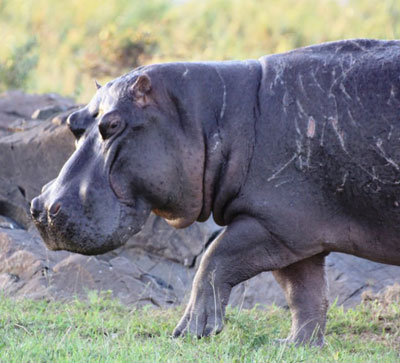By FnF Correspondent | PUBLISHED: 02, May 2015, 16:38 pm IST | UPDATED: 02, May 2015, 16:38 pm IST

Washington: As per a new study, populations of some of the world's large herbivores are dwindling, raising the threat of an "empty landscape."
Many populations of animals such as rhinoceroses, zebras, camels, elephants and tapirs are diminishing or threatened with extinction in grasslands, savannahs, deserts and forests, Oregon State University scientists say.
The authors focused on 74 large herbivore species, animals that subsist on vegetation, and concluded that without radical intervention, large herbivores (and many smaller ones) will continue to disappear from numerous regions with enormous ecological, social, and economic costs.
Team leader William Ripple said that he expected that habitat change would be the main factor causing the endangerment of large herbivores, but surprisingly, the results show that the two main factors in herbivore declines are hunting by humans and habitat change.
Ripple added that their analysis shows that it goes well beyond forest landscapes to savannahs and grasslands and deserts. So they coin a new term, the empty landscape.
The highest numbers of threatened large herbivores live in developing countries, especially Southeast Asia, India and Africa, the scientists report. Only one endangered large herbivore lives in Europe (the European bison), and none are in North America, which, the authors add, has already lost most of its large mammals through prehistoric hunting and habitat changes.
The authors note that 25 of the largest wild herbivores now occupy an average of only 19 percent of their historical ranges. Competition from livestock production, which has tripled globally since 1980, has reduced herbivore access to land, forage and water and raised disease transmission risks, they add.
The loss of large herbivores suggests that other parts of wild ecosystems will diminish, the authors write. The likely consequences include, reduction in food for large carnivores such as lions and tigers, diminished seed dispersal for plants, more frequent and intense wildfires, slower cycling of nutrients from vegetation to the soil and changes in habitat for smaller animals including fish, birds and amphibians.
The study appears in Science Advances.

by : Priti Prakash
The farmers have marched back to Delhi with their demands, for which they sat on roads leading to th...